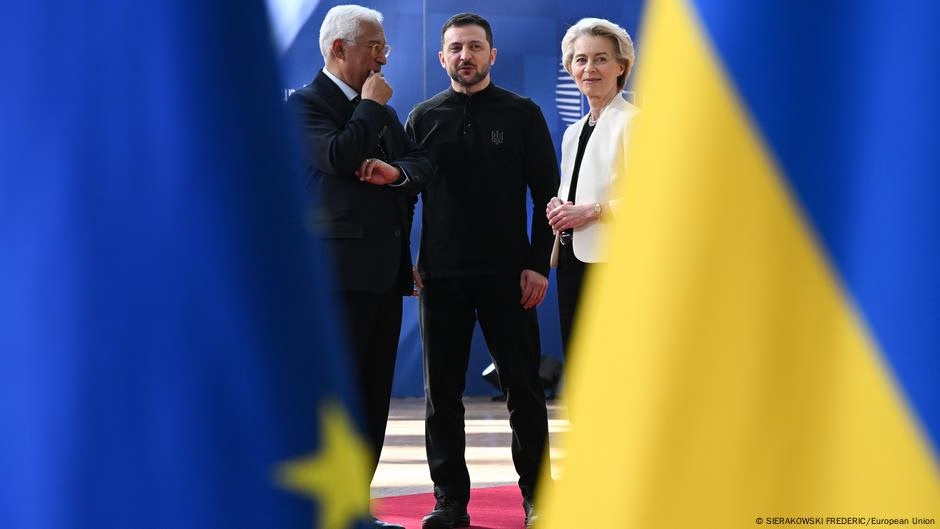Following a heated encounter with US President Donald Trump at the White House, Ukrainian President Volodymyr Zelenskyy arrived at the European Union summit in Brussels showing clear unity. Backed by European Commission President Ursula von der Leyen and European Council President Antonio Costa, his reception was warm, a stark contrast to his public chastising by Trump in Washington.
Stressing unity, Zelenskyy thanked European leaders for their support, while von der Leyen referred to the occasion as a “watershed moment” for Europe and Ukraine. She emphasized the need for Europe to defend itself and support Ukraine in its quest for lasting peace.
Despite positive imagery and strong public support, EU leaders were assessing how to significantly increase defense spending and assist Ukraine following the US suspension of military and financial aid. Meanwhile, tensions escalated with Russia’s Foreign Ministry rejecting a ceasefire proposal and the US questioning its commitment to NATO.
Despite the wavering commitment from the US, European leaders insist on trans-Atlantic cooperation and are contemplating how to manage their security without the US. The leaders approved a proposal to boost EU defense investment by nearly €800 billion over the coming years.
Zelenskyy, who met with EU leaders for an extended period, left with a sense of support reaffirmed, though no new financial commitments were made immediately. The EU reiterated its backing for Ukraine with nearly all members agreeing, except Hungary, which has consistently obstructed EU decisions on sanctions against Russia and aid to Ukraine.
Hungary’s President Viktor Orban has been supportive of Trump’s recent overtures to Russia and prefers a deal involving the US and Russia but without Ukraine or the EU involved. However, there is speculation that the EU may offer additional financial assistance to Ukraine in the coming weeks.
The EU has been discussing increased defense spending for years, with most members falling short of the 2% GDP target for NATO countries. Nevertheless, with a potential shift in the White House, several EU members are now ready to significantly up their defense expenditure, including Germany, whose next chancellor is open to revising constitutional debt rules to prioritize military spending.
Despite some consensus, certain issues remain contentious, including the proposal to use French nuclear weapons as a deterrent for other EU countries as the US disengages. Nonetheless, European leaders are unwavering in their commitment to Ukraine, with promises of continued political, economic, and military support.







